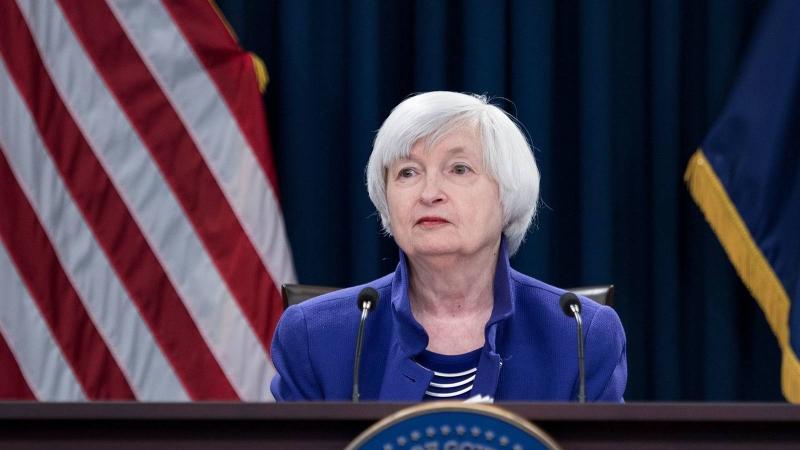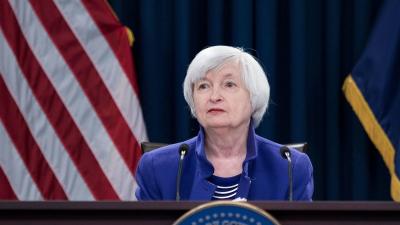U.S. Treasury Secretary Janet Yellen announced that the ten hours she spent in bilateral meetings with senior Chinese officials in recent days were "direct" and "productive," helping to stabilize the strained relations, at the conclusion of her four-day visit to Beijing.
Yellen, who is leaving Beijing today, Sunday, stated at a press conference that the U.S. and China still have disagreements on several issues, but she expressed confidence that her visit advanced U.S. efforts "to put U.S.-China relations on a firmer foundation."
She affirmed that "there are significant disagreements between the U.S. and China," citing Washington's concerns regarding what it describes as "unfair economic practices" and recent punitive actions against U.S. companies.
Yellen added, "But President Joe Biden and I do not view the U.S.-China relationship through the lens of great power conflict. We believe the world is big enough for both our countries to thrive."
She noted that the purpose of her visit was to establish and deepen relationships with the new Chinese economic team, reduce the risk of misunderstandings, and pave the way for cooperation in areas such as climate change and the debt crisis.
"I believe we have made some progress and that we can have a healthy economic relationship that benefits us and the world," she said, indicating that she expects increased and more regular communications.
Yellen revealed that Chinese officials raised concerns about an anticipated executive order restricting foreign investment, but she assured them that any such action would be narrow in scope and carried out transparently, through a decision-making process that allows for public input.
In response to a question about the plans of BRICS member countries—Brazil, India, Russia, and China—to unveil a new currency, Yellen stated that she expects the dollar to remain the dominant currency in international transactions.
"All the data I know shows that the dollar is used extensively, nearly 90 percent in international transactions, and I do not believe there is an alternative that could replace that in the near future."
Yellen's visit is the latest effort by Washington to repair relations between the world's two largest economies, which have been affected by issues ranging from Taiwan to technology that have drawn both countries' allies into the competition, impacting businesses and trade relations.
U.S. Secretary of State Antony Blinken visited China last month, marking the first visit by the top U.S. diplomat since Biden took office, and U.S. Climate Envoy John Kerry is also expected to visit China this month.
This U.S. diplomatic effort comes ahead of a possible meeting between President Biden and Chinese President Xi Jinping at the G20 summit in September in New Delhi, or the Asia-Pacific Economic Cooperation meeting scheduled for November in San Francisco.




